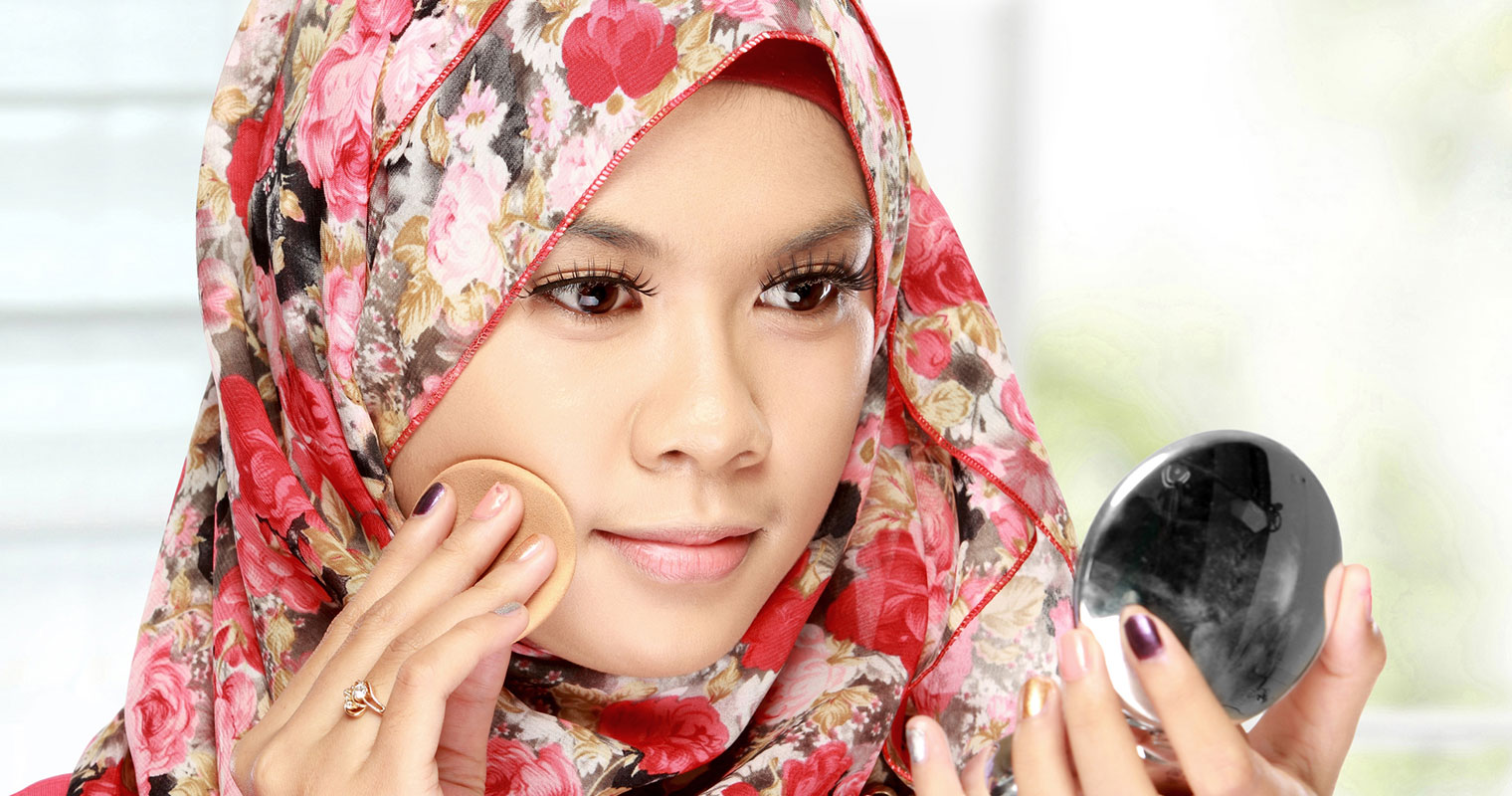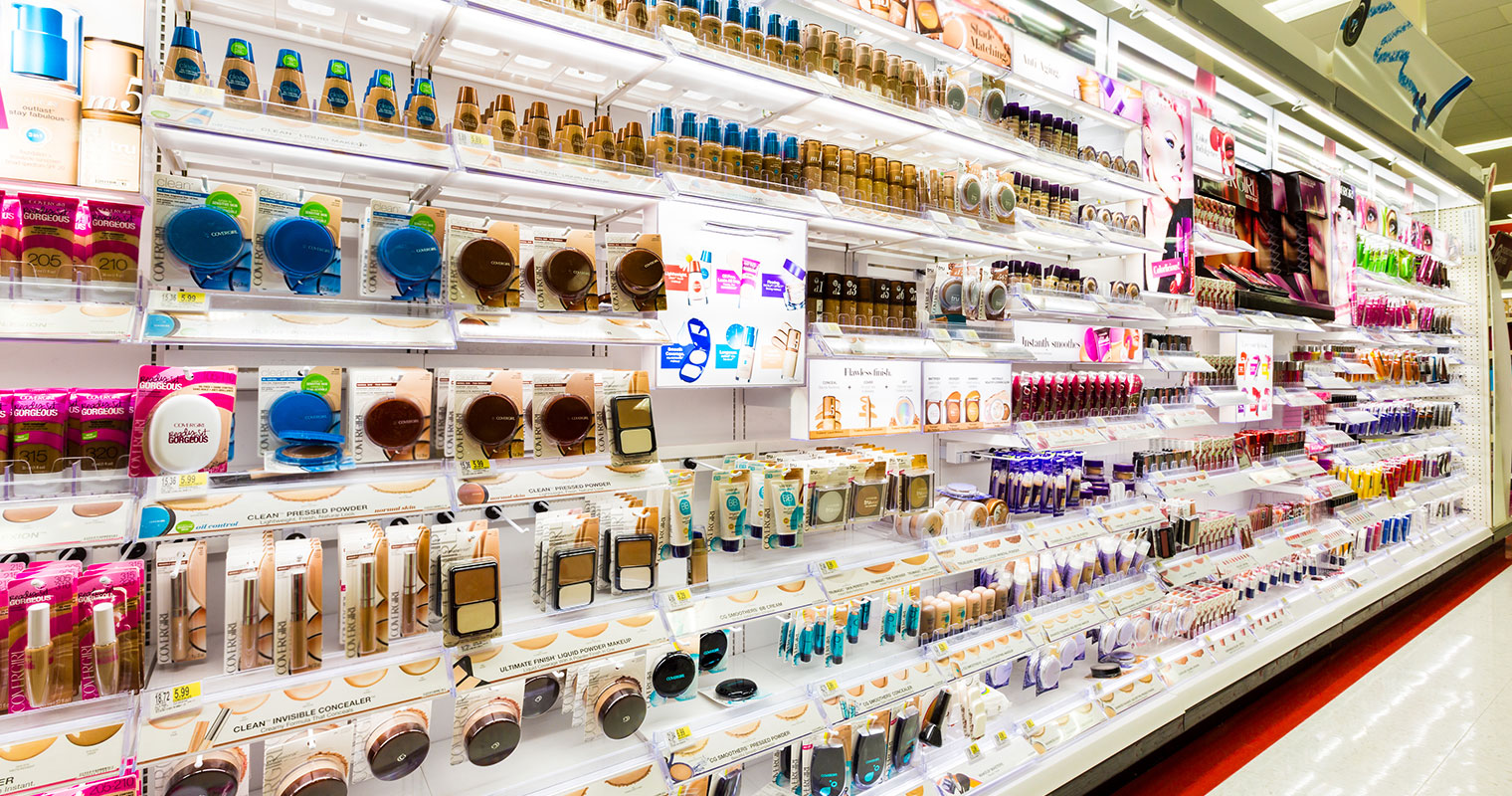Why halal certification?
Commercial items bear the label of halal to show that their production methods are in line with the Islamic guidelines. Especially, halal food certification is a form of food safety certification—a verification that the supply chain meets the required standards. It regulates the denomination of the halal mark, certificate, or logo. The certification propounds that the entire process, from getting raw material to distribution, follows the Islamic code. The reason that it is commonly associated with food safety is that it focuses keenly on food quality and safety assurance. While many practices of food safety certifications are recognized across the globe, halal food certification is unique to the Muslim community.
Beyond food, the halal certification also applies to cosmetics & skincare, household chemicals, and services like animal breeding, crop production, animal feed, vegetable production, livestock productions, long-term storage production, chemical/biochemical substances, catering companies, and many others.
Rising demand for halal
Studies show that along with the Muslims, non-Muslim consumers have also started taking an interest in consuming halal food products. The demand for the halal industry is on the rise because it ensures proper hygiene and strictly adheres to the food safety standards. Halal food products have a reputation for being healthier, cleaner, safer, and of superior quality, and so, amid the increasing food-borne diseases and the resulting demand for properly prepared and clean food products, the halal market is expanding.

The increasing demand accentuates the significance of attaining the halal food certification among food manufacturers and retailers. The consumers will rely more on the halal label instead of word of mouth.
A study analyzed the preference of consumers with regard to different certifications under the food safety certification. It is found that consumers prefer the halal food certification to other certifications like Hazard Analysis Critical Control Point (HACCP) and Good Manufacturing Practice (GMP). Moreover, Muslim consumers specifically rely more on the halal certification than those carrying the ISO (International Organization for Standardization) mark.
Why is halal important to Muslims?
The word ‘halal’ draws from an Arabic word ‘ahalla’ that means to render permissible or lawful. While it is a verb-noun, halal also has a use as an adjective for lawful or permissible acts. Overall, halal describes everything that is deemed permissible under Islamic law. Along comes its opposite, the principle of haram, which covers all aspects of human life, including the dietary patterns.
The Muslims are required to check the legal status of every food before consuming it. They can only eat halal food. The legal status of a food item is found on the principle of natural permissibility, i.e., ‘lawfulness is the rule while prohibition is an exception.’ The Quran postulates that everything present on earth has been created for humanity’s use. So, it allows people to use anything unless prohibited.

The prohibited, i.e., haram foods, are easy to identify. The Islamic scriptures, i.e., Quran and Hadith, clearly term certain foods as haram. The Quran contains the types of animals that are forbidden to consume. It also prescribes mentioning Allah’s name before slaughtering an animal. The other information about the right/halal way to slaughter an animal is present in Hadith. The rules mainly revolve around ensuring hygiene and the sequence. Both scriptures are explicit on the prohibition of alcohol. The list of haram food items varies on the basis of different Muslim sects and schools of thought. However, improper slaughter or that without saying the name of Allah, pork and its by-products, blood and its by-products, alcohol and carnivorous animals are haram unanimously.
Benefits of Halal certification for general public
Halal certification is deemed as the benchmark for quality assurance, food safety, and other standards that hold meaning for both Muslims and non-Muslims alike. The requirements of this certification coincide with many conventional quality standards like ISO9000, GMP, Good Hygienic Practice (GHP), veterinary inspection, Hazard Analysis and Critical Control Point (HACCP), and Codex Alimentarius.
Essentially, an industry that fulfills all the conventional quality standards while taking some additional measures regarding the quality and safety standards will manufacture better quality products. Hence, the concept of halal food transcends mere religious values and becomes more of a benchmark of hygiene and cleanliness. That is the reason non-Muslim consumers respond positively to halal certification. A few systematic studies show that the halal sign is perceived as a quality assurance marker among the non-Muslim communities.

The halal certification offers benefits to Muslim and non-Muslim consumers alike. The consumer does not have to check all the ingredients or look for the production methods. The halal label is a proof that all the quality standards, along with the Islamic code (Sharia), have been met. It helps the consumers to make an informed choice right away at the time of purchase. For Muslim consumers, it assures that the products meet the requirements of Sharia Law (the Muslim code for living). Whereas, for the non-Muslim consumers, it ensures that the producer’s hygiene and sanitation procedures are top-notch.
Benefits of halal certification for food
Clean and hygienic
Firstly, the halal products are cleaner and more hygienic because the Islamic method of slaughtering requires certain protocols to be fulfilled. For example, animals are slaughtered in a way that all the blood is completely drained. Blood contains a great number of pathogenic microorganisms that can be transferred to the consumer. It can be a disease-carrying agent, as many of its microbes are harmful for humans. The consumers of halal products are protected from these toxins because of the specific procedure of slaughter.
Moreover, Islam prescribes certain conditions for a halal animal. The meat of an animal is suitable for consumption only if the animal has eaten clean, vegetarian food. This factor makes the meat more hygienic because the animal feed is devoid of any harmful, toxic material.
In general, halal products exclude certain ingredients that can be harmful to health, and thus prevent many diseases.
Free of pork and its by-products
Pork is deemed as one of the most dangerous meat, despite being the most consumed product across the globe. It is the cause of many food-borne illnesses. Studies show that it is a transmitter of hepatitis E, a virus that impacts 20 million people every year. Consumption of pork also leads to an enlarged liver and liver failure. Pork is also associated with a high incidence of Non-tuberculous Mycobacterial (NTM).
Free of alcohol
Alcohol is another ingredient absent in the halal products. Consumption of alcohol leads to liver damage and, ultimately, liver failure. It also causes many liver diseases, collectively called alcoholic liver diseases. Excessive alcohol consumption can damage the brain, as it reduces the communication between brain cells. It can lead to impaired brain function and dementia.
Alcohol consumption is also a cause of many serious illnesses like hypertension, coronary heart disease, and other cardiovascular diseases.
The halal products tend to save the consumer from the harmful effects of these ingredients.

Benefits of halal certification for skincare products
Hygienic
The halal products are cleaner and more hygienic. Blood is removed completely after slaughter to prevent bacteria from breeding. Even the animal feed remains clean and devoid of any toxin. By keeping the sources of ingredients clean, the halal products nourish the skin with clean nutrients.
Safe
Halal skincare products are safer for application, as they do not contain the basic ingredients used in non-halal cosmetics like alcohol. Research shows that alcohol can harm the skin’s protective barrier. It causes free-radical damage, worsens oily skin and redness, and is deemed as ‘pro-aging.’ Studies show that applying alcohol on the skin can increase cell death by 26 percent. It also has carcinogenic properties.
The selective choice in animal feed (only vegetarian) easily renders the raw material for halal products organic, by simply choosing organic produce as feed. In this case, one might think that skincare brands using such raw materials should be able to achieve halal compliance easily. However, this is not the case because many brands find it hard to do away with the other haram ingredient, alcohol.

Despite many researches proving the harm brought by alcohol in skincare, there are 3 main reasons why manufacturers continue to use it. Firstly, it is cheap. With a keen eye on the cost of production, alcohol is often chosen among its alternatives. Secondly, it is an effective penetration enhancer. It can penetrate our outer skin layer and carry other skincare ingredients into the deeper layer, enhancing the result of the product. Thirdly, it is an effective preservative and it can cheaply prolong the shelf life of skincare products, with ingredients contain a lot of nutrients and moisture. (read other reasons why alcohol is so popular among manufactures). Without the determination to omit alcohol from the ingredients, many brands fail to be halal certified.
BLACK PAINT is one of the rare exceptions. Because the brand was born from the basis of Microbiome Skincare, it espouses maintaining and enhancing the ecosystem of good bacteria living on our skin to get reciprocal beauty benefits (read more about how Microbiome benefits us). Alcohol and good bacteria are nemesis. And so, alcohol’s presence has been eradicated from all its product formulas right from the start. Having an ingredient advantage in halal compliance, BLACK PAINT took up the other steps to meet the full requirements of halal certification for skincare, and finally got approved after 3 years of effort. Customers of BLACK PAINT now enjoy its products with assurance of top notch organic and halal quality.
Benefits of halal certifications for businesses
According to the Organization of the Islamic Cooperation (OIC) report, the global market of halal products stands at $2.3 trillion. Among these products, food makes 67 percent, pharmaceuticals make 22 percent, and cosmetics and perfumes form 11 percent of this industry. Moreover, the potential volume of the halal food industry is 17 percent of global consumption.
Also, Muslim population accounts for the second-largest in the world. A Pew Forum report also indicates that Muslims will comprise 26.4 percent of the world population by 2030. This rise in population will bring immense business opportunities, mainly for the halal industry. Not catering to the Muslims’ demand means missing on a significant proportion of consumers. The majority of Muslims strictly adhere to the rules of halal and haram.

Studies showed that 96.4 percent of Muslim participants consumed only halal products; 89.1 percent referred to the halal logo before purchasing a product; 89.1 percent respondents maintained that being a Muslim, they only purchased products having halal certification.
In conclusion, as the certification makes it convenient for them to choose halal products, halal logo is need to help sales.
Moreover, people are getting more conscious of ethical consumerism. This makes halal products a preference because of the better ethical practices. The halal market ensures that animals are not harmed or caused undue pain during their slaughter. In additional, the halal industry is associated with the values of social responsibility, animal welfare, ethical investment, and stewardship of the earth. It has transgressed the religious boundaries over time. Halal certification is a proof that all these values and practices have been fulfilled.
In short, halal certification improve a business’s image and reputation, especially in countries with a larger Muslim population. Multiple studies show that firms should pursue the certification to ride on a growing demand.
Comparing halal certification quality among 3 different types of countries
The growing demand and relatively untapped potential of the industry have led many countries to develop halal certification mechanisms for quality assurance and credibility. Although the basic principle of halal remains the same, the halal certification procedures vary across countries. Factors like culture, legislation and habits ease or obstruct the quality and credibility of their respective halal certification.
Below, we are going to study 3 typical cases of countries. Malaysia is chosen to represent the first type of country, in which Islam is the majority’s religion in a developing country. One might think that since Muslims dominate, the high demand of halal products establishes a healthy halal certification economy. United States is chosen as the second type of case study. It represents a typical developed country in which Islam is a minority’s religion. It is an agriculture and manufacturing powerhouse and it has high stakes in establishing an efficient halal certification system, because its exports to Muslim countries depends on it.
We are going to show that our first and second case study each has its advantages, but are bogged down by other pitfalls. We are going to show how our last case study Japan, equipped with a unique culture, is able to manufacture halal certified products with the highest quality, compliance and credibility.
First, we go over the procedures officially listed in each country’s halal certification body.
1. Malaysia
Authorities that are designated to issue and regulate the halal certification in Malaysia include the Department of Islamic Development Malaysia (JAKIM) and the States Department of Religious Affairs (JAIN). JAKIM is designated to receive and process the applications for halal certificates both nationally and internationally. After processing the application, the said authority conducts the site audit. After that, it undertakes the sampling and analysis if the need arises. The audit report goes to the review and approval panel. Once approved, the certificate is issued.

Three different certification schemes cover consumable and non-consumable products, food premises, and slaughterhouses. These schemes include:
- Product: It covers food and cosmetics.
- Premise: It covers hotel kitchen/commissary, food court/franchise outlet, and restaurant.
- Abattoir: This scheme covers slaughterhouses and premises for processing animals.
The certification procedure requires the applicants to ensure that the sources of ingredients are halal and deal only with suppliers having halal certification. It further requires the applicants to employ at least two full-time Muslim Malaysian citizens in the kitchen or food processing and handling section. Also, it requires all the workers to practice the prescribed code of ethics and hygiene practices.
2. United States
The Islamic Services of America (ISA) and the Islamic Food and Nutrition Council of America (IFANCA) are the leading agencies of halal certification in the US.
ISA deals with halal certification standards, rules, regulations, and protocols. After the agency receives an application, it starts an initial inquiry into the case. It sends the overview to the applicant, which sends it back after completing the documentation. ISA’s halal Quality Assurance team reviews the product for compliance with the halal standards, after which the facility audit is conducted. Once all the requirements are completed, the body issues the certification.
ISA’s halal product categories include meat and poultry, bakery and food processing, dairy, cheese, and ice cream, flavors and ingredients, vegetables and fruits, oils and cooking agents, pharmaceuticals, vitamins, and food supplements, health and beauty, and non-consumables like lubricants, packaging, filters, and minerals.
IFANCA grants a halal certificate in five steps. It includes conducting an on-site audit, after which it decides whether to grant or reject the certificate. The council can refuse to issue halal certification if the applicant does not comply with the halal requirements or any of the obligations under the agreement.
The council can certify under the JAKIM, United Arab Emirates (UAE), GCC Standardization Organization (GSO) – GCC is the Gulf Cooperation Council – Indonesian Ulama Council (MUI), and Islamic Religious Council of Singapore (MUIS).
3. Japan
The Muslim Professional Japan Association (MJPA) is the main halal certification body in Japan. It provides the certification to the manufacturers after ensuring that the production process meets the requirements of the halal standards.

The procedure of issuing the certification starts when the halal certification application is submitted to MJPA. The certifying body evaluates the application. The next procedure is agreement and quotation. After that, the site is audited, and the case is presented before the Fatwa Committee for evaluation. (Fatwa: a ruling on a point of Islamic law given by a recognized authority)
The MPJA provides consultation on the halal assurance quality system. After the audit, the auditors decide whether the applicant should undergo a lab analysis of the product. If the lab analysis is conducted and the results are satisfactory, the Fatwa Committee takes up the case. Upon its approval, the halal certificate is issued.
The basic requirements to attain a halal certificate for restaurants and factories include no pork, alcohol, and their derivatives. The meat, fat, and other materials should originate from halal animals that are slaughtered in compliance with the Islamic principles. The certification requires the slaughterhouse to employ a Muslim slaughterman who is trained in the Islamic process of slaughtering. The site should be away from pig breeder and slaughterhouse. The slaughtering procedure must follow the relevant Islamic principles.
The requirements also include no material content that qualifies as Najs (ritually unclean) like blood, carrion, and feces, etc.
Issues of halal certification in Malaysia and United States
Many countries have put in place proper procedures to issue halal certification. The certification processes prescribed on the paper are quite comprehensive and seem to cover every aspect of the production process. However, in practice, many hurdles surface and degrade the quality and credibility of halal certification.
In developing Muslim countries like Malaysia, the halal certification process is susceptible to scams due to inefficient audits or checks and balances. Even Malaysia that boasts being a pioneer of the halal certification has been struggling with widespread corrupt practices. The country’s leading state certifier has a reputation for being deeply corrupt. The issuance of certificates sometimes relies more on the kickbacks than compliance with Sharia law. Moreover, the authority lacks fully operational forensic laboratories and experienced staff to evaluate and conduct the site audit properly. There is also a tussle between the two state institutions, with one having hegemony over the whole process. This tussle between the two agencies is taking a toll on the progress of its industry. Similar incidents surfaced in Indonesia as well.
In countries like the US, the standards of halal certification are different from agency to agency. That is because the Muslim population is not unanimous on what exactly qualifies as halal. For example, many differ in the procedure of stunning the animal before slaughter. That makes it hard to achieve a universal halal certification method.
Moreover, given that countries like the US have Muslims as a minority, they have a limited understanding of Islam and halal. Even though the US certification bodies make it mandatory to employ a Muslim worker in the slaughterhouse, it does not suffice. It lacks an advisory committee at the helm to standardize procedures, definitions and practices.
Another issue in the US (as well as other Muslim minority countries) is that some practices can clash with the state guidelines. For instance, the controversy on pre-stunning the animals or hand slaughtering becomes more complicated if the state guidelines specify the use of the machine in slaughterhouses or pre-stunning.
Moreover, there is no central agency in these countries to regulate the process of halal certification. The US Department of Agriculture (UDA) looks over the food health and safety but does not deal with issues related to compliance with Sharia law. The lack of involvement by the government leaves a room for halal logo scams.
Incidents like the false halal logo scandal have surfaced in the past. There have been cases where even the leading halal certification agency misrepresented the meat as halal. The agency was exporting the beef products under the notion that a Muslim slaughterman had hand-slaughtered the meat. It also used captive bolt stunning during the slaughter process, which is a controversial practice in the halal industry.
The absence of a regulatory authority and lack of consensus on what constitutes as halal casts doubts on the entire certification process. A halal logo from one certifier may not be acceptable to specific sections of the local community. That complicates matters for the manufacturers who seek to capture the local market.
Japan’s unique culture makes its halal certification top-notch
Firstly, we compare USA with Japan. Although the general population does not relate much with Islam, the Japanese culture offsets this issue. The admiration of the “shokunin” (craftsmanship) spirit is widespread among Japanese. They honour each individual’s effort to hone into a skill at his absolute best. This makes everyone process-driven, detail oriented and treat every job with full dedication. This puts them in an advantage when dealing with an unfamiliar topic like Islam. The related personnel handling the halal certification do research deeply and comprehensively and craft out procedures and guidelines which sometimes even outshines native Muslim countries.
Moreover, in a country beset by natural disaster, the Japanese community has developed warm, cooperative ties—generally dubbed as a collective survival mechanism. The strong human relationship and moral values enforce compliance of each individual to procedures, rules and laws. An individual takes an almost unbearable moral punishment if he is to breach collective integrity for personal gain. In this aspect, quality of certification audit is way more trustworthy compared to Malaysia, or developing countries infested with unscrupulous and corrupt practices.

Equipped with sublime work ethnics and extensively crafted procedures, Japan has a rigorous halal certification process. It can be seen when BLACK PAINT’s halal certification process took 3 years from start to finish. Without the determination and dedication to provide its customers with pristine quality, it is difficult to endure such arduous process. On top of that, Japan’s certification agency has a fatwa council (Fatwa: a ruling on a point of Islamic law given by a recognized authority), making the halal certification very creditable and the products are high in compliance and quality.
References
https://www.researchgate.net/publication/297967625_Motivations_and_Benefits_of_Halal_Food_Safety_Certification
https://pdfs.semanticscholar.org/7bb4/fc7bbc3f4d9f11fa4269705d62020e8957ef.pdf
http://citeseerx.ist.psu.edu/viewdoc/download?doi=10.1.1.458.2667&rep=rep1&type=pdf
https://scialert.net/fulltext/?doi=pjn.2009.507.517
https://www.thenational.ae/business/halal-food-certification-proving-a-problem-in-japan-1.145277
http://hrmars.com/hrmars_papers/Understanding_the_Halal_Concept_and_the_Importance_of_Information_on_Halal_Food_Business_Needed_by_Potential_Malaysian_Entrepreneurs.pdf
https://mpja.jp/halal-certificate?lang=en
https://www.islamcenter.or.jp/halal-certificate/
https://jhalal.com/halal
https://jhalal.com/auth/
ttps://mpja.jp/halal-certificate?lang=en
https://mpja.jp/halal-certificate?lang=en
http://www.halal.gov.my/v4/images/pdf/MPPHM2014BI.pdf
http://www.dagangasia.com/download/Checklist%20of%20JAKIM%20Halal%20Certificate_AGENT.pdf
https://www.isahalal.com/services
https://ifanca.org/Pages/HalalApplication.aspx








